1. “Dyn-o-mite!” – Good Times
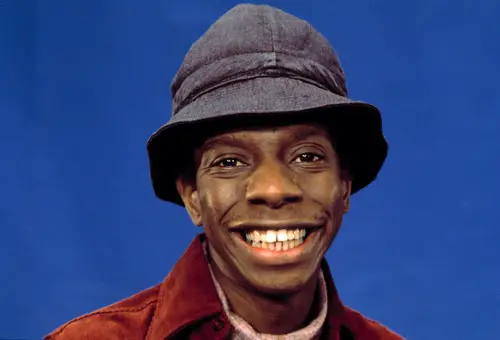
Jimmie Walker’s explosive catchphrase as J.J. Evans wasn’t just a stroke of comedic genius, it was something he’d already been using in his stand-up act. Walker developed “Dyn-o-mite!” to pump up his performances, and producer Norman Lear encouraged him to bring that same energy to Good Times. Director John Rich pushed for the line to be yelled with full force, and it quickly became part of J.J.’s larger-than-life persona shares ReMIND Magazine.
What many fans don’t know is that Walker based J.J. on some of the loud, charismatic guys he grew up with in the Bronx. These were the kinds of men who could walk into any room and command it with a joke or a shout. “Dyn-o-mite” wasn’t just a punchline—it was a tribute to that bold, infectious style adds the New York Times.
2. “Sit on it!” – Happy Days
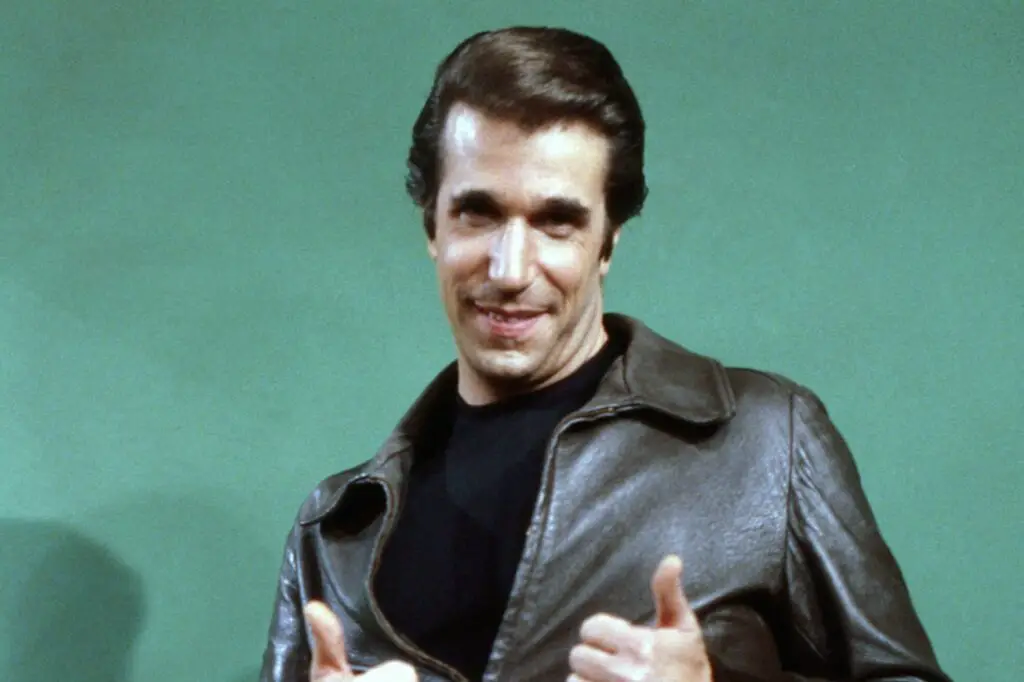
Joanie, Richie, and even Mrs. Cunningham all used this line at one point, but it was The Fonz who truly made “Sit on it!” iconic. Garry Marshall, the show’s creator, credited his own colorful family for the phrase. In particular, his mother used to toss it out during heated conversations when she was over someone’s nonsense shares Mental Floss.
It wasn’t meant to be vulgar, just a cheeky way to say “Get lost” or “Buzz off.” Marshall thought it was the perfect blend of sass and safety for prime-time TV. When Henry Winkler delivered it with his signature cool, it became a part of American pop culture—one inspired directly by Marshall’s own home life says Hollywood Outbreak.
3. “Well, isn’t that special?” – Saturday Night Live
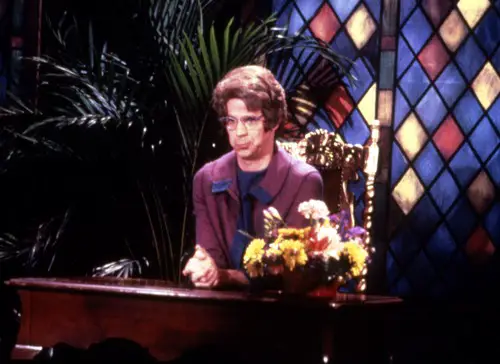
Church Lady, played by Dana Carvey, had a way of looking down her nose while delivering this snarky gem. Carvey said he based the character on two women he’d grown up with in church—both of whom had a gift for passive-aggressive judgment. Their sing-song delivery and pursed lips were baked into every “special” she uttered.
That particular line came from one woman in particular who used it constantly at bake sales and community events, always dripping with sarcasm. Carvey took that tone, exaggerated it, and made it one of the most biting lines of late ’80s television.
4. “What’chu talkin’ ’bout, Willis?” – Diff’rent Strokes
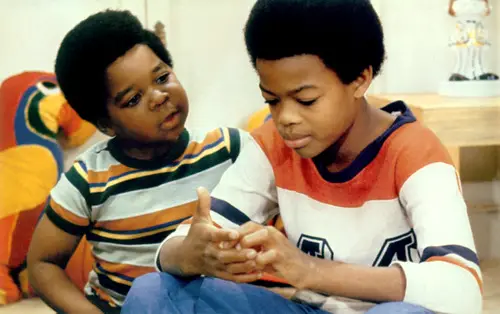
Gary Coleman turned this line into a national phenomenon, but the inspiration behind it was surprisingly personal. The writers crafted Arnold’s skeptical, scrunchy-eyed delivery around Coleman’s own natural responses during rehearsals. He had a way of questioning everything in a sweet but slightly incredulous tone.
Coleman also credited a cousin of his who used a similar phrase when they were growing up. That real-life rhythm helped make Arnold’s disbelief both funny and familiar. The result was a line that never lost its charm, no matter how many times it was repeated.
5. “Don’t make me get my belt!” – The Bernie Mac Show
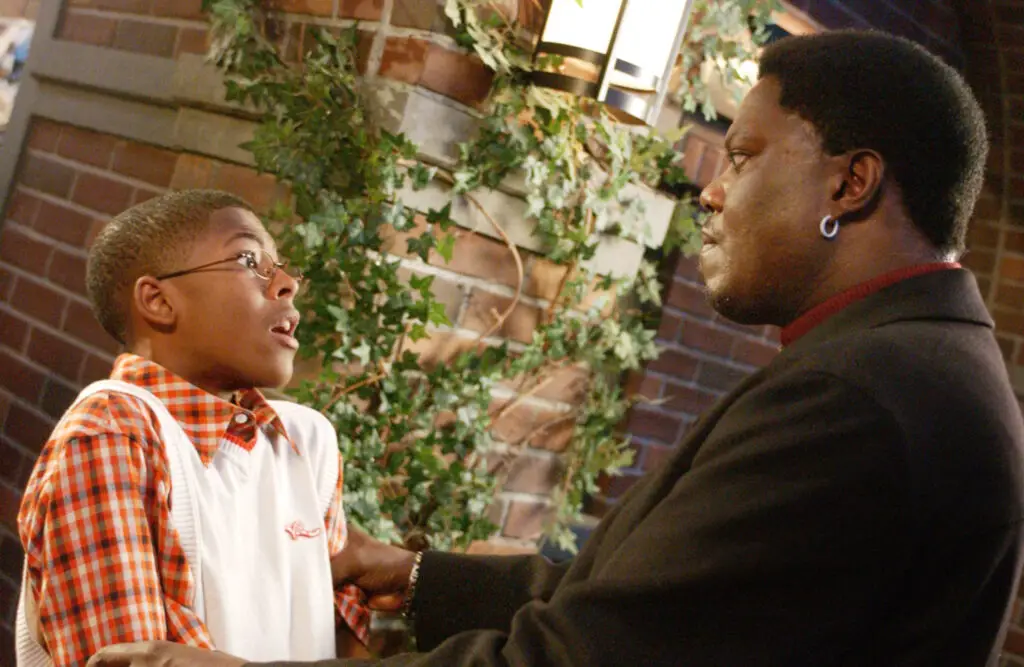
This was one of Bernie Mac’s go-to phrases on his show, and it came straight from his own childhood. In interviews, Mac often talked about being raised by tough but loving relatives on the South Side of Chicago. His grandmother in particular had no problem reaching for a belt to make a point.
Mac exaggerated those experiences for laughs, but the line resonated with anyone who grew up hearing similar warnings. It wasn’t about violence—it was about that old-school authority figures used to carry in their voice. Mac’s delivery was part homage, part warning, and totally unforgettable.
6. “Did I do that?” – Family Matters
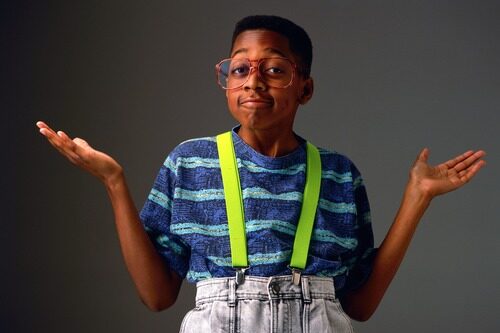
Steve Urkel’s nasal whine of regret became one of the most imitated catchphrases of the ’90s. But Jaleel White has said that the line actually came from a neighbor kid he knew growing up. The boy was always breaking things and trying to dodge blame with a sheepish “Did I do that?”
White mimicked the kid during early rehearsals, and the producers loved it so much they built entire episodes around it. It was a perfect blend of innocence and chaos, and audiences instantly latched onto it. The fact that it came from a real-life clumsy kid makes it even better.
7. “Oh, my God! They killed Kenny!” – South Park
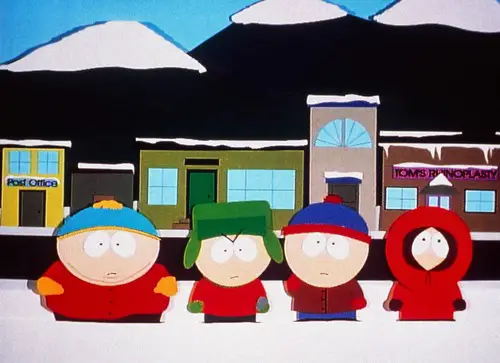
While South Park is animated, the show’s creators based a surprising amount of it on real-life experiences. Trey Parker and Matt Stone have said that Kenny was based on a childhood friend who always wore a parka with the hood up and mumbled when he talked. They couldn’t always understand him, so they just assumed the worst.
The phrase itself became a running gag, but it reflected the way neighborhood kids used to overreact to everything. There was something hilariously overdramatic about the way the line was delivered—rooted in real friendships, real overreactions, and real cold Colorado winters.
8. “I know nothing!” – Hogan’s Heroes
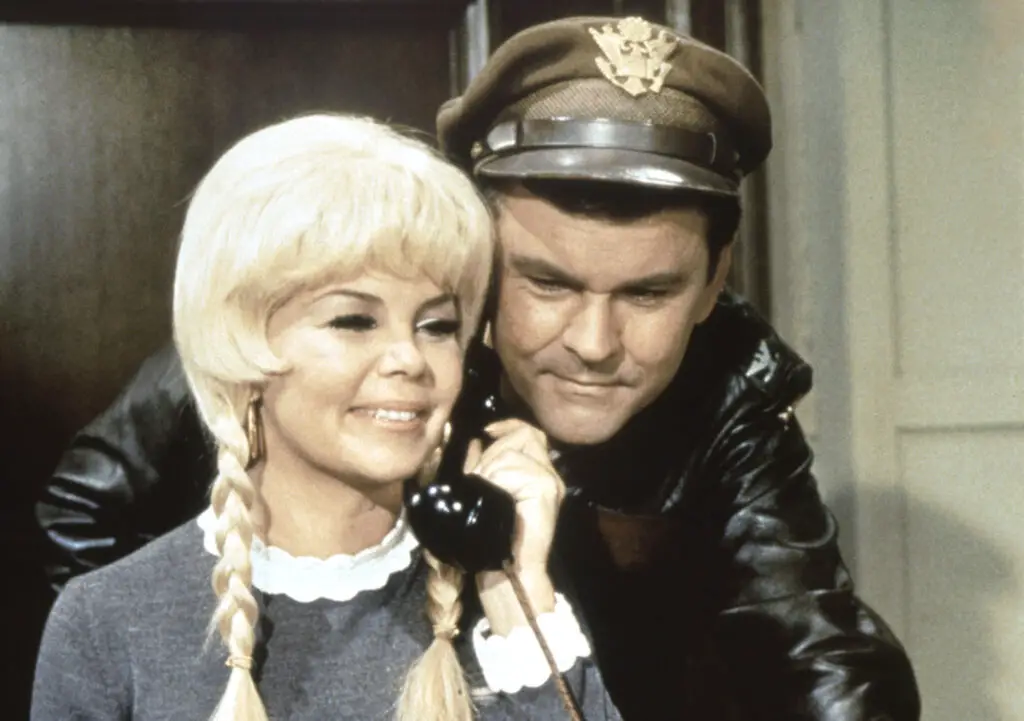
Sergeant Schultz’s panicked plea of innocence was more than just a punchline—it was inspired by post-war German culture. Actor John Banner, an Austrian Jew who fled the Nazis, reportedly based his portrayal on the many Germans he encountered who insisted they had no knowledge of wartime atrocities.
The line captured that blend of denial and survivalism. Banner played Schultz as a man who didn’t want trouble, even if it meant turning a blind eye. His repeated “I know nothing!” wasn’t just funny, it was a sly nod to a historical mindset that Banner had witnessed firsthand.
9. “Yada, yada, yada.” – Seinfeld
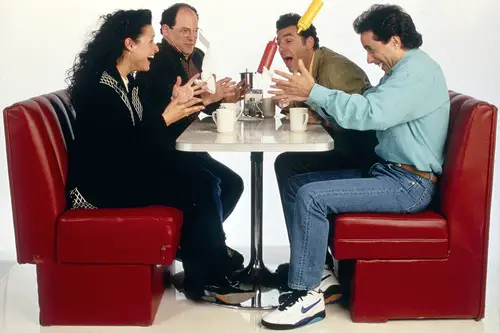
Elaine’s casual catchphrase for skipping the boring parts of a story came from one of the show’s writers, Peter Mehlman. He said he based it on a woman he once dated who would constantly drop “yada yada” in conversation. It drove him nuts—but it stuck in his head.
When he finally used it in a script, it became one of the most quoted lines from the entire series. “Yada, yada, yada” was shorthand for everything unimportant, uncomfortable, or just plain awkward. And it all came from one real woman who just didn’t feel like filling in the blanks.
10. “No soup for you!” – Seinfeld
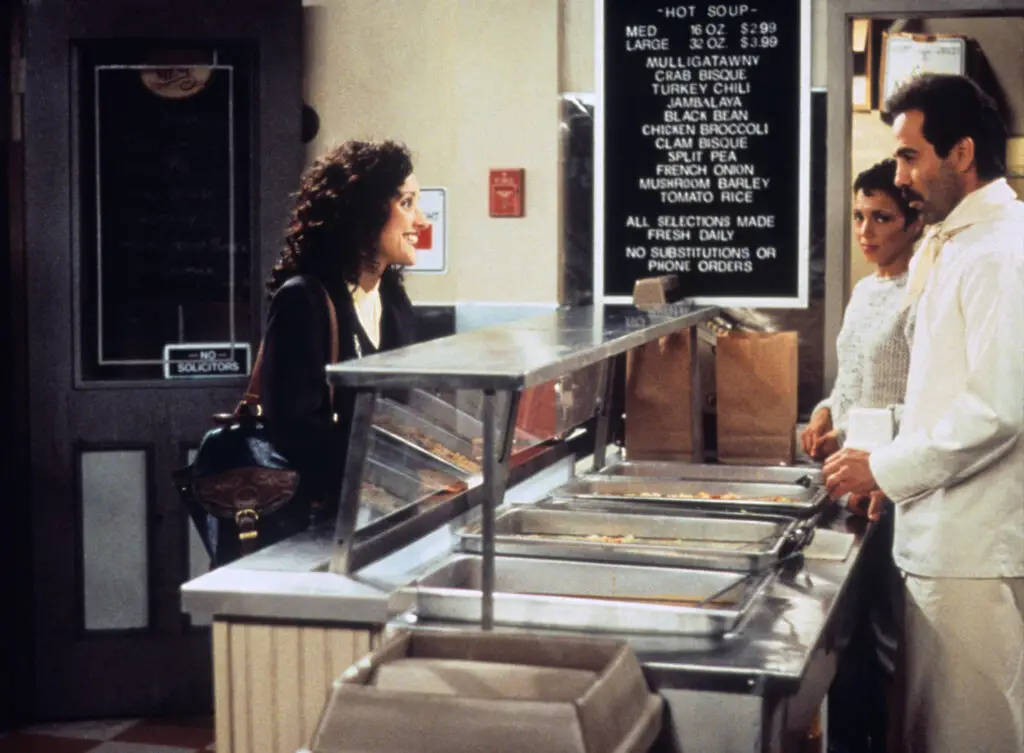
The infamous Soup Nazi character was actually based on a real New York chef named Al Yeganeh. Larry David had visited his soup shop and found the owner’s strict ordering rules both absurd and terrifying. If you didn’t order properly, you really were denied soup.
Actor Larry Thomas modeled his performance on what David described, including the clipped, militaristic tone. “No soup for you!” wasn’t just a joke—it was a quote from a man who took soup very, very seriously. The line quickly became an emblem of unreasonable customer service, and it all started with a real guy in Manhattan.
11. “How you doin’?” – Friends
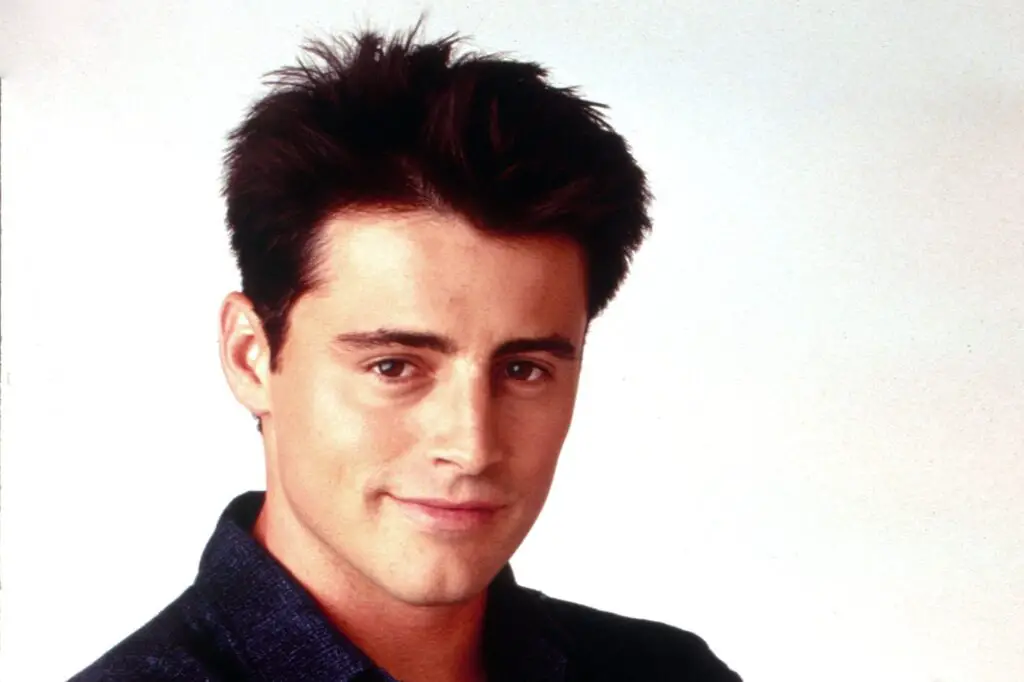
Joey’s flirtatious one-liner might seem like just another cheesy pickup line, but Matt LeBlanc based it on real guys he knew growing up in Newton, Massachusetts. He said the phrase, especially when paired with a raised eyebrow and a nod, was something you’d hear all the time.
LeBlanc turned it into a part of Joey’s charm and cluelessness, and it worked like a charm. What was once a regional expression used by wannabe Romeos became one of the most beloved lines in Friends. Its success lies in how real and familiar it already sounded.
12. “Kiss my grits!” – Alice
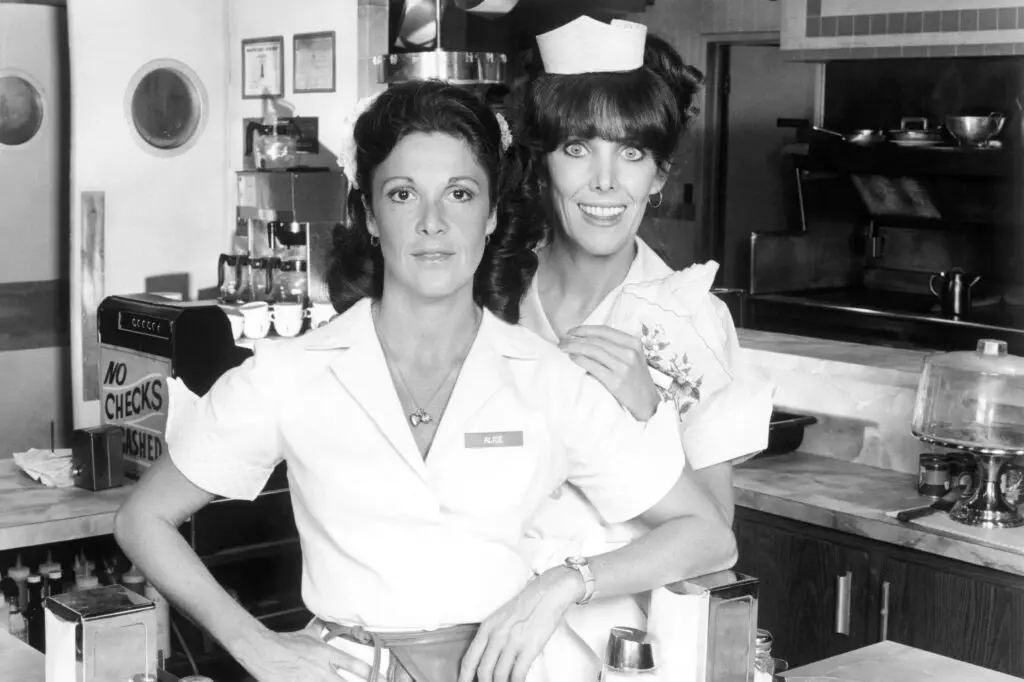
Flo’s Southern sass was a huge part of Alice’s charm, and “Kiss my grits!” became her signature retort. Polly Holliday, who played Flo, said the line came from women she knew back home in Alabama. It was their way of saying “Buzz off” without cursing.
Writers originally had her saying something far more risqué, but network censors pushed for a cleaner alternative. Holliday remembered hearing “kiss my grits” growing up and suggested it. The result was TV gold, and a saying that felt authentically Southern because, well, it was.
13. “Ayyyy!” – Happy Days
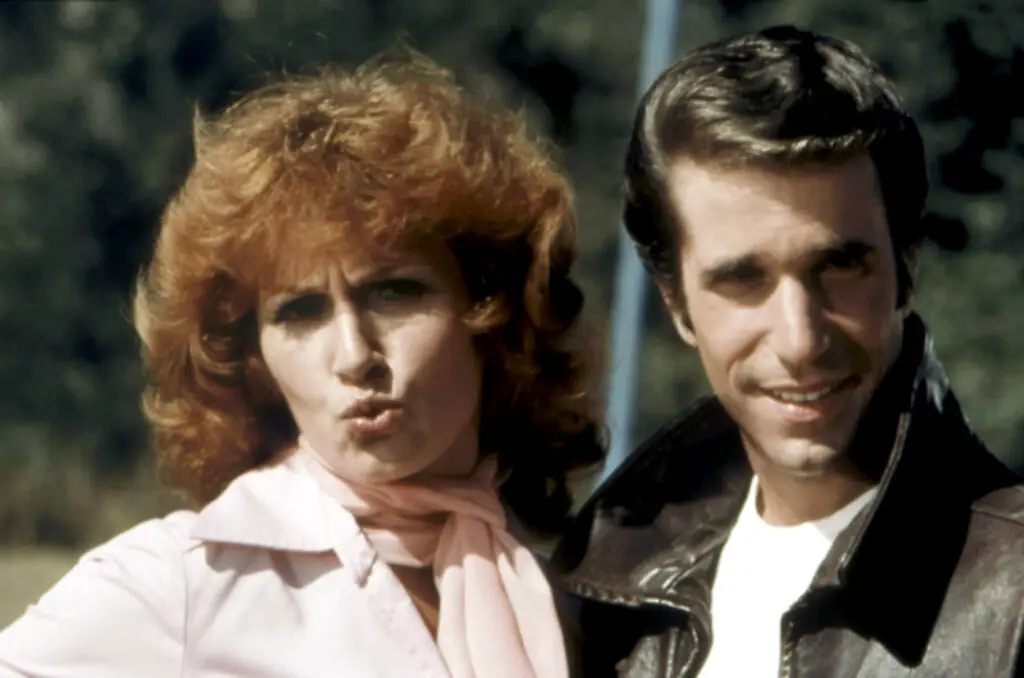
The Fonz’s legendary “Ayyyy!” wasn’t written in the script the way it ended up being delivered. Henry Winkler created the sound because he didn’t want to say a full line when the scene just called for a cool nod or greeting. He based it on the way some of the older guys in his New York neighborhood would acknowledge each other—with a sound, a gesture, and a whole lot of swagger.
It was less about words and more about presence, and Winkler knew that from real-life observation. When he first did it on set, the audience erupted, and the producers knew they had something special. “Ayyyy!” became The Fonz’s way of saying everything and nothing at the same time, just like those effortlessly cool guys Winkler had once admired from afar.
